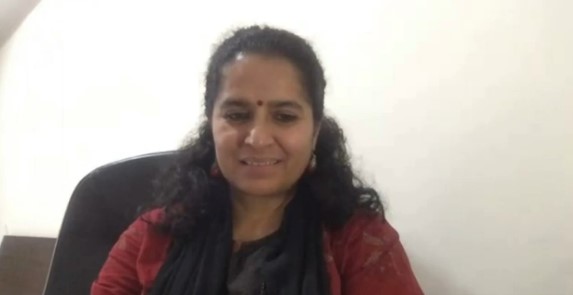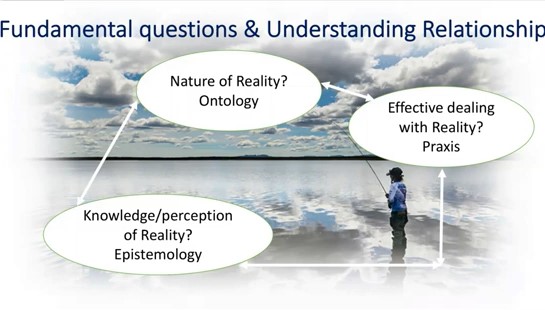The terms ‘vulnerability’ and ‘viability’ are usually studied in the context of socio-cultural and political-economic settings. In these cases, they would refer to vulnerability from and viability in challenging external circumstances, such as the consequences encountered by ecosystem-dependent communities in the Sundarbans in India and Bangladesh. However, the speed and quality of transition are directly proportional to the psychological constitution, worldviews, and resilience of the individual and their sum total collective.

Starting out with exploring the origin of the terms vulnerability and viability and the translation in other languages, Anuradha Choudry, Assistant Professor in the Department of Humanities and Social Sciences at the Indian Institute of Technology Kharagpu, set out to engage the audience by inserting some exercises into her lecture on 28 April 2023.
The two opposing terms start out with the notion of being subjected to pressures or threats and imply that we want to move from a situation where we can be hurt and are vulnerable to one where we can live well and are viable.
She drew attention to the fact that things are moving and changing around us all the time, that change is actually the only constant. So people are embedded by a reality that is changing, that is measurable, at least to some extent, but the way they perceive that reality can vary as well depending on their living conditions and experience. Then the confrontation of the objective reality and its perception by humans translate into practice when they act in one way or another.

From the way we approach an observation of an object or situation, from watching with our naked eyes, or perhaps through a microscope or with other analytical instruments or lenses, we will get a different understanding of reality. At the quantum level the boundaries between objects in nature, including the way we see self, may become fuzzy and divert very much from what we see when looking around unaided.
How are we then dealing with nature, how do we live within and how we influence our environment?
Jumping to the concept of happiness she goes on to alert the audience to the difference it makes to our ability to cope with adverse circumstances when our internal state of mind is positive or negative. That has been shown in many social science experiments. Awareness about the difference our attitude and perception can make gives us more control over dealing with vulnerabilities and increasing chances for viability.
Click here to watch the entire lecture and the Q&A.
Between Tradition and Modernity
- 2000 years ago: the ‘vivaria’
- The story of the sturgeon
- La storia dello storione
- Mundus maris participated in the 2024 World Fisheries Day organized by Canoe and Fishing Gear Association of Ghana (CaFGOAG).
- Challenges and Opportunities in the sustainability of Inland open water fisheries in India
- April V2V lecture – Vulnerability to Viability: Mind Matters
- A glimpse at Marsaxlokk, the traditional fisheries harbour in Malta
- Interview with Ms Khady Sarr at the artisanal port of Hann
- What the women in fisheries in Hann are saying
- Women in fisheries: Interview with Ms Ramatoulaye Barry, leader of a group of women fish mongers in Conakry
- Interview with F. Soumah, leader of artisanal fishers
- A detour in the Boulbinet artisanal fishing port in Conakry, Guinea
